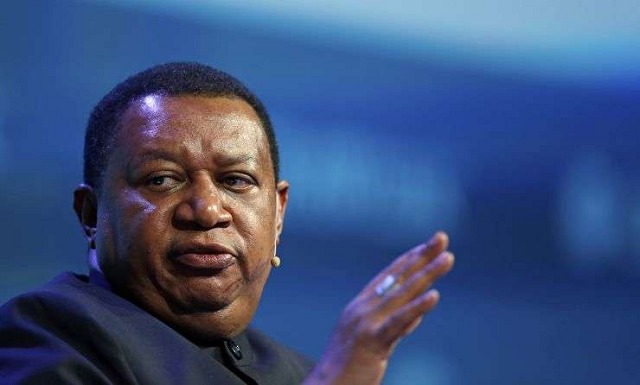In an apparent bid to downplay any need for deeper cuts to oil production by the Organisation of Petroleum Exporting Countries (OPEC) and Russia, the Secretary-General of the OPEC, Mr. Mohammad Barkindo, yesterday predicted oil market stability in 2020, saying the market outlook for the coming year might have upside potential.
OPEC and its allies, led by Russia, meet in December to review output policy.
The OPEC+ alliance has since January implemented a deal to cut oil output by 1.2 million barrels per day to support the market. The pact runs to March 2020.
Presenting OPEC’s 2019 World Oil Outlook (WOO) 2040 in Vienna, Austria, yesterday, Barkindo said: “Based on the preliminary numbers, 2020 looks like it will have upside potential.”
Asked whether he was more optimistic about the market than he had been in October, when he said all options were open, including a deeper cut, Barkindo replied that the picture had improved.
“There are definitely brighter spots.
“The outlook as we get closer to 2020, the numbers are looking more refined and the picture is looking brighter,’’ he said.
On whether the market looked oversupplied for next year, Barkindo said: “we are not there yet. It is not possible for us at the moment to pre-empt all processes of reviewing the market before the December meeting.”
Barkindo also said Brazil would be welcome to join the oil producer group but the country had not yet made an official request to do so.
“They would be most welcome to join,’’ he told reporters, adding that consultations had taken place in Riyadh.
Brazilian President Jair Bolsonaro said last month that he wanted his country to join OPEC, a move that would add the most significant new producer to the oil cartel for years but met with scepticism in Brazil’s energy industry.
Earlier on Tuesday, OPEC released its 2019 World Oil Outlook, in which the producer group said it would supply a diminishing amount of oil in the next five years as output of U.S. shale and other rival sources expanded.
Meanwhile, OPEC has disclosed that between 2019 and 2040, the world would need to invest up to $10.6 trillion across the various value chains of the oil industry to keep up with expected rise in demand and supply.
It also explained that over this period, demands from oil liquid from its member countries, including Nigeria, would rise to 44.4 million barrels per day (mbd) up by 7.8mbd from the current 36.6mbd.
Barkindo stated this during the launch of OPEC’s WOO 2040 in Vienna-Austria.
The launch is ahead of the next meeting of OPEC and non-OPEC member countries in December to assess the status of their cooperation to keep oil demands and supplies balanced.
“Given this outlook, there is clearly the requirement for major oil industry investment. In the period to 2040, the WOO sees the need for around $10.6 trillion of investment across the upstream, midstream and downstream sectors,” Barkindo said.
Barkindo also stated that OPEC member countries were fully committed to making the necessary investments to keep consumers well supplied.
According to him, the issue of returning global investments remained a core focus of the Declaration of Cooperation the OPEC and non-OPEC countries signed.
OPEC stated that the 2019 WOO was its 13th edition, and it presented an in-depth review of its secretariat’s medium – to long term projections and assessment for the global oil and energy industry.
The WOO equally highlighted that total primary energy demand would expand by a robust 25 percent mark between 2018 and 2040 and that all forms of energies will be required in the future to help to meet expanding demand in a sustainable way.
It said this would be necessary to balance the needs of people in relation to their social welfare, the economy, and the environment.
According to it, natural gas would witness the largest demand growth in absolute terms, while renewables would experience the largest growth in percentage terms.
“Demand for OPEC liquids is projected to increase to around 44.4mbd in 2040, up from 36.6 mbd in 2018. Crude distillation capacity additions of around 8mbd are expected between 2019 and 2024, with over 70 per cent in the Asia-Pacific and the Middle East. This is close to 50 per cent of the total capacity additions required in the long-term to 2040,” it added.
Source: THISDAY












